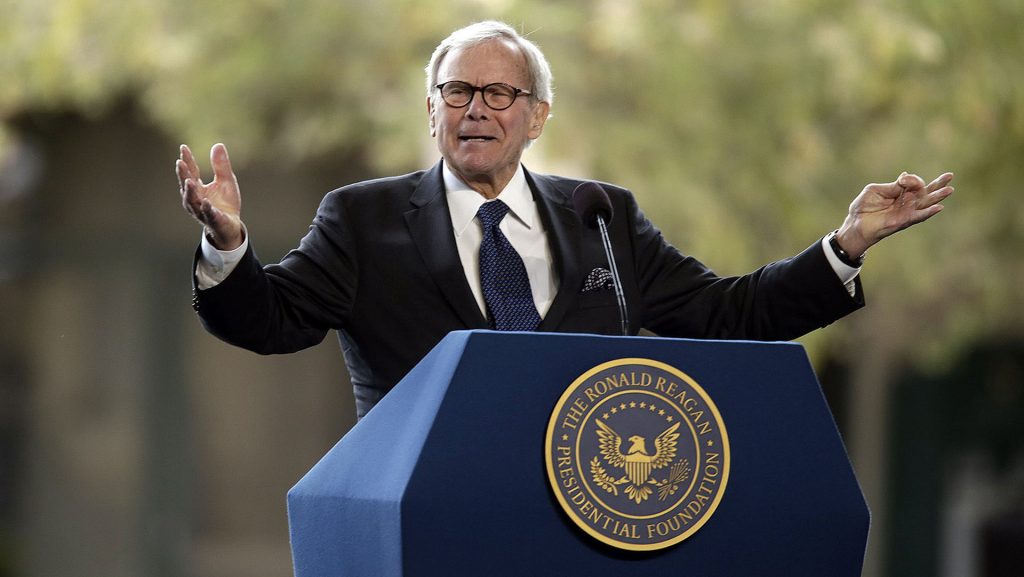In the era of #MeToo, speaking truth to power must include holding those we admire accountable.
Isabella Rosario
Tom Brokaw is one of America’s most respected journalists. Joining NBC in 1966, Brokaw covered the Watergate scandal and hosted the “Today” show before anchoring the “Nightly News” for 22 years. In 2014, he was awarded the Presidential Medal of Freedom. And in 2016, he donated thousands of archives from his illustrious career to the University of Iowa, which he attended his freshman year.
He’s now at the center of a workplace sexual-harassment scandal.
In November, NBC came to the forefront of the #MeToo conversation when longtime anchor Matt Lauer was let go after being accused of sexual misconduct. Last week, The Washington Post released a report that detailed NBC’s handling of these allegations and revealed new ones against Brokaw. Former NBC correspondent Linda Vester told the the Post that Brokaw had made unwanted advances toward her twice in the 1990s, including an attempted kiss. Another woman, who chose to remain anonymous, said Brokaw had also harassed her in the 1990s when she was a young production assistant. Brokaw denied all allegations publicly and again in a leaked letter to colleagues, in which he slighted Vester’s career and shamed her for not coming forward earlier.
To add insult to injury, more than 60 women who currently work or have worked at NBC — including prominent hosts Rachel Maddow and Andrea Mitchell — signed a letter in support of Brokaw. The letter states in part, “Tom has treated each of us with fairness and respect. He has given each of us opportunities for advancement and championed our successes throughout our careers.”
RELATED: UI Library Opens Collection of Tom Brokaw’s Work to Public
I understand critics of the #MeToo movement who call for due process when shocking claims are made; NBC’s decision to not hire an outside investigation is disappointing. For this reason, I find it even more incredulous how Brokaw’s supporters believe him helping their careers supports his innocence. While the letter doesn’t outright deny the accusations, it’s a blatant attempt to derail serious claims with a glowing character reference. The rationale is, while this person is being criticized, they’ve always treated us with fairness and respect. As you learn of this potential victimization, remember that our experience with this person has been positive.
The bottom line is, as put best by journalist Megyn Kelly, “You don’t know what you don’t know.” Sexual harassment often insidiously operates behind closed doors and powerful personas. On her morning talk show “Megyn Kelly Today,” she noted that there was a similar response from female colleagues when she and others accused Roger Ailes of sexual harassment.
“I remember thinking, ‘You’re wrong. It happened to me, your statements are wrong, and you’re going to be proven wrong,’ ” she said.
RELATED: Video: #MeToo on the University of Iowa’s campus
Does this mean that Brokaw is guilty? Considering the alleged incidents were decades ago and there won’t be an outside investigation at NBC, we will probably never know for sure. But something is for sure: Positive personal experiences with someone accused of a crime are not proof of innocence. And while sharing them in light of accusations may feel like the right thing to do, all they do is perpetuate the myth that talented or outwardly nice people can’t do bad things. Abusers can do insightful journalistic work. They can play “America’s Dad” on television. They can even become the president of the United States.
It’s up to you whom you believe as people in power — including those you personally or professionally admire — are accused of indecent behavior. But remember: You don’t know what you don’t know.



